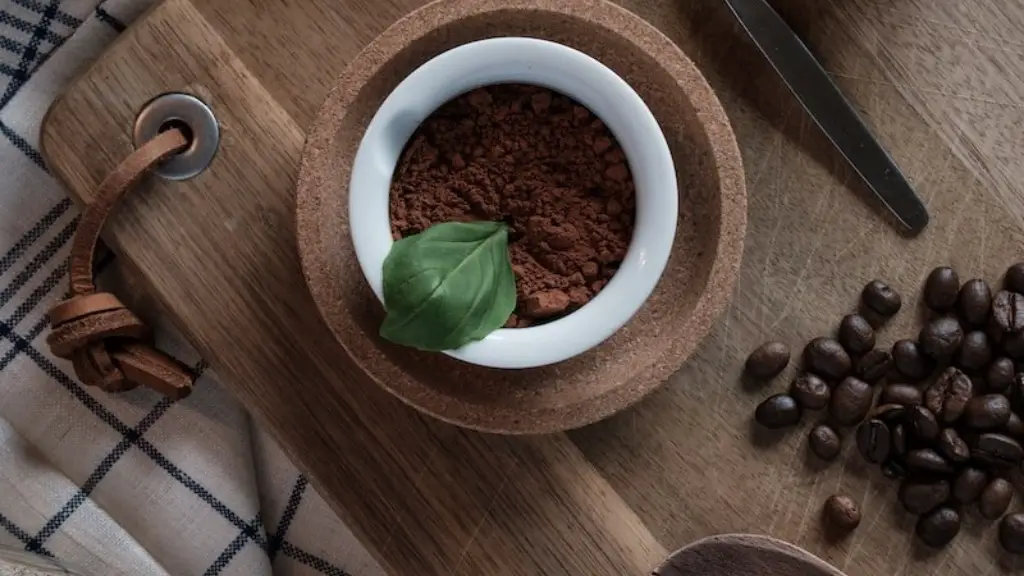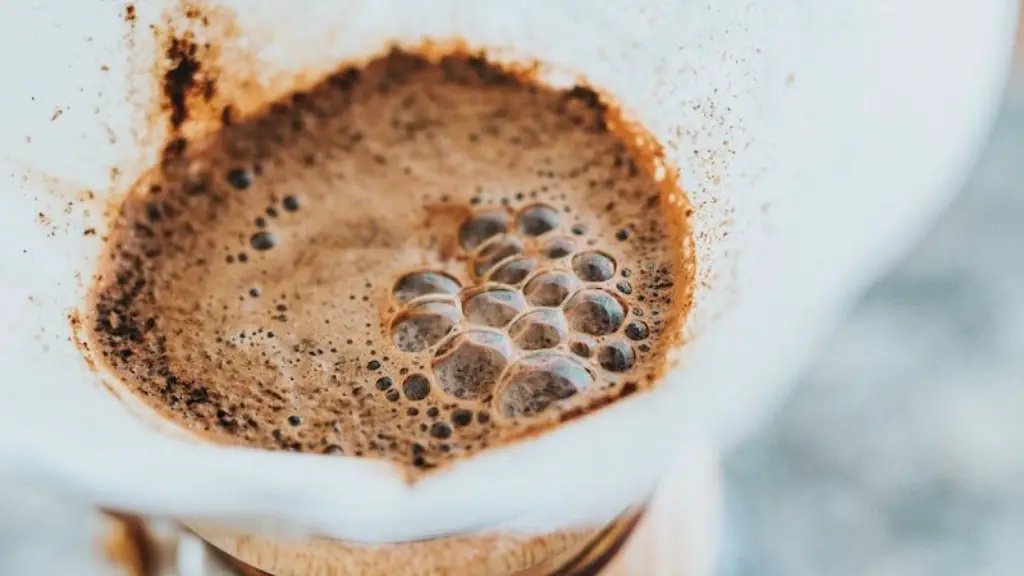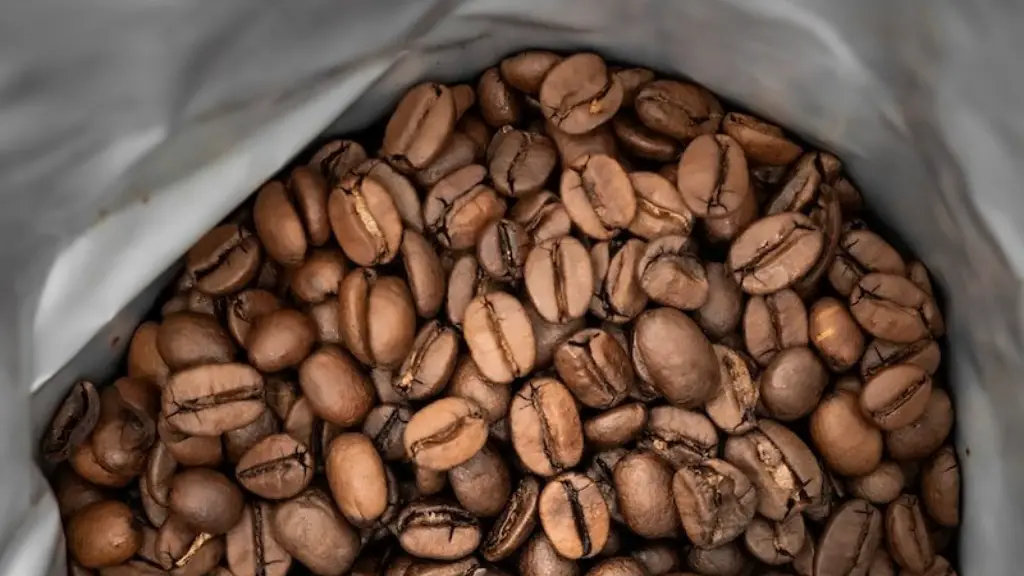Iron is an essential nutrient for our bodies, it helps us to create red blood cells, produce oxygen and provide us with energy. While it is vital for proper health, it can be difficult to get enough from the food we eat. Taking iron supplements can help to bridge the gap, but can drinking coffee at the same time cancel out the effects of the iron?
The first thing to remember when taking iron supplements is that they can cause stomach upset and nausea. For this reason, some people take them with food or after meals. This can reduce the risk of digestive side effects. Caffeine is known to hinder the absorption of iron, so it is generally advised to avoid drinking caffeinated beverages like coffee when taking iron supplements.
Studies have shown that drinking coffee an hour before taking iron supplements can reduce iron absorption by up to 39%. The effects of caffeine on iron absorption seem to be more significant when consumed on an empty stomach. Combining caffeine with iron can also lead to constipation and other gastrointestinal issues.
Experts suggest waiting two hours after taking iron supplements to drink coffee. This gives the body enough time to absorb the iron and reduces the effects of the caffeine. Additionally, cutting back on your daily coffee intake can help your body absorb more iron from your supplements.
Although caffeine does inhibit iron absorption, it does not completely cancel out the effect of taking iron supplements. The body will still absorb some of the iron, but the amount might be lower than if you were to not drink coffee. For this reason, it is important to get enough iron from other sources such as leafy greens, lean meats, and fortified cereals.
It is always best to consult with your doctor before taking any supplements, and to be aware of their potential side effects. Additionally, it is important to follow the instructions on your supplement bottle regarding dosage and timing.
Iron and Nutrition
Iron is an important mineral that helps your body to produce red blood cells, and is also necessary for energy production and oxygen transport. Symptoms of iron deficiency can include fatigue, dizziness, headaches, pale skin and brittle nails. Although it is possible to get enough iron from the food you eat, an iron supplement can help you bridge the gap, and prevent a deficiency from occurring.
Getting enough iron from your diet is essential for proper health. Eating a balanced diet that includes animal sources such as red meats, or plant sources such as legumes, dark leafy greens, fortified cereals, and nuts, can help you to reach the recommended daily allowance (RDA) of iron for your age and gender.
Iron can also be found in some multivitamins, but it is important to check the label if you are taking iron supplements. Too much iron can be toxic, so it is important to talk to your doctor if you think you are not getting enough from the food that you eat.
Coffee and Iron Absorption
Coffee is well known for it’s high caffeine content, and while caffeine in moderation can be beneficial to your health, when combined with iron it can inhibit absorption. Coffee can also cause stomach upset if taken on an empty stomach, so it is generally advised to take your iron supplement with meals or an hour afterwards.
Studies have shown that drinking coffee can reduce the absorption of iron by up to 39% if taken an hour before the supplement. It’s important to note however, that drinking coffee does not cancel out the effects of taking an iron supplement. The amount of iron absorbed will be lower, but the body will still absorb some.
To reduce the effects of caffeine on iron absorption, wait two hours after taking your supplement before drinking coffee. Additionally, it’s important to get enough iron in your diet to ensure your body is receiving the recommended amount of daily iron.
The Pros and Cons of Taking Iron Supplements
Taking iron supplements can be beneficial for those who are found to be deficient in iron, however like all supplements, it is important to consult with a doctor beforehand. Iron can help to increase energy levels and improve cognitive performance, however taking too much can be dangerous.
Iron supplements can cause side effects such as nausea, vomiting, constipation, dark stools and stomach pain. Additionally, drinking coffee at the same time can inhibit the body’s absorption of iron, causing it to be less effective or not absorbed at all. Talk to your doctor if you experience any of these symptoms.
In conclusion, iron is an important mineral that helps create red blood cells and energy metabolites. Taking iron supplements can help you to bridge the gap if you are deficient in iron, however it is important to consult with your doctor beforehand and not drink coffee at the same time.
Interactions with Other Supplements
Iron can interact with certain medications and supplements, so it is important to talk to your doctor before taking any iron supplements. Certain medications such as antibiotics, antacids and calcium supplements can inhibit iron absorption, and should be taken at least 2 hours apart from your iron supplement.
In some cases, taking iron with a vitamin C supplement can help to increase absorption. Vitamin C is known to enhance iron absorption and can even stimulate formation of new red blood cells. Speak to your doctor to find out if taking the two together is something that’s right for you.
Iron supplements can also interact with dairy products, so it is best to take them with food or after meals, to reduce the risk of digestive side effects. Additionally, be aware that taking iron on an empty stomach can decrease absorption, so it is best to take your supplements with food.
Health and Safety Precautions
When taking iron supplements, it is important to take the correct dosage and not exceed the recommended daily allowance (RDA). Too much iron can lead to symptoms such as vomiting, nausea, weakness and mental confusion. Additionally, overdosing on iron can be toxic and even fatal, so it is important to talk to your doctor to ensure you are taking the right amount.
It is also important to store iron supplements out of reach of children. Iron poisoning can be deadly in children, so keep supplements out of reach and throw away any that are out of date.
Combining iron supplements with coffee can reduce absorption of the iron and cause stomach upset, so it is best to wait two hours after taking your supplement to drink coffee. Additionally, getting enough iron from food sources is essential for proper health and for reducing the risk of a deficiency.





